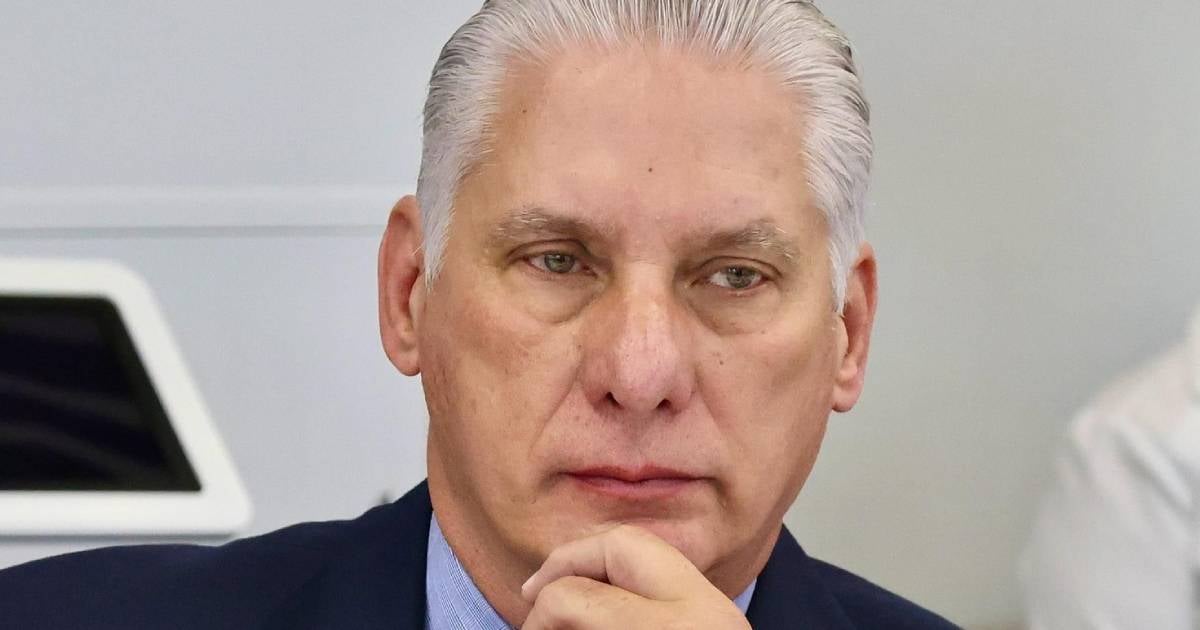The Cuban leader Miguel Díaz-Canel will undertake an official visit to Belarus on June 25 and 26, as confirmed by Cuba’s ambassador in Minsk, Santiago Pérez Benítez, during a meeting with the president of the Council of the Republic, Natalya Kochanova.
According to information gathered by the state news agency of Belarus, BelTA, in addition to holding bilateral meetings, Díaz-Canel will participate in the Eurasian Economic Union (EAEU) summit, which Belarusian authorities describe as a key step to consolidate the strategic alliance between Havana and Minsk, at a time when both governments are facing international sanctions and strong criticism for human rights violations.
“It had been a while since I visited sister Belarus”, commented the Cuban ambassador, who assured that the Cuban leader maintains “excellent relations” with President Alexander Lukashenko, with whom he meets periodically at international forums.
The Cuban official noted that the visit could signify a “qualitative leap” in relations between the two countries, which already collaborate in key sectors such as industry, health, biotechnology, culture, and education.
From the Belarusian side, the Chairman of the International Affairs Commission of the Council of the Republic, Sergei Aleinik, mentioned to SB News the depth of the ties between both governments, which date back to the Soviet era and have strengthened in recent years.
“For more than thirty years of independence, we have developed a very serious political dialogue at all levels,” said Aleinik, recalling that in 2023 and 2024, the prime ministers of both countries exchanged official visits.
Among the specific advancements mentioned is the establishment in Cuba of a joint venture for the production of pharmaceuticals, the certification of over 50 Belarusian pharmaceutical products, and contracts for the supply of about 30 of them to the Cuban healthcare system.
It was also announced the intention to modernize the agricultural machinery supplied by Belarus and to establish assembly and maintenance centers, in addition to promoting tourism for health resorts, scientific cooperation, and educational exchanges, with over 40 agreements signed between universities.
At what cost are these ties being strengthened?
While Díaz-Canel prepares for another official trip abroad, many Cubans wonder how these international alliances truly benefit the population, at a time of shortages, blackouts, inflation, and deterioration of basic services on the island.
Furthermore, the announcement of the tour coincides with a national landscape characterized by social discontent, mass migration, and the growing disconnect between the rhetoric of power and the everyday life of the ordinary Cuban.
In recent weeks, the country has been shaken by unprecedented discontent among university students, triggered by the sharp increase in mobile internet rates imposed by the state-owned Cuban Telecommunications Company (ETECSA).
The measure, which limits top-ups in Cuban pesos and forces many to pay in dollars, has been seen as a deepening of digital inequality and a betrayal of the socialist principles of the country.
Students from various universities have called for academic strikes and demanded the repeal of the new rates, as well as structural changes in the government’s economic policy.
The official response has been to delegitimize the protests, labeling them as manipulated by “enemies of the system,” and offering partial solutions that have not met the demands of the student movement.
For years, the Cuban government has strengthened its ties with regimes such as that of Lukashenko in Belarus and Vladimir Putin in Russia, while maintaining its anti-imperialist rhetoric and denouncing international sanctions.
Frequently Asked Questions about Díaz-Canel’s Visit to Belarus and Cuba’s International Relations
Díaz-Canel’s visit to Belarus aims to strengthen the strategic alliance between Havana and Minsk, in a context where both governments face international sanctions and criticism for human rights violations. Additionally, the Cuban leader will participate in the Eurasian Economic Union (EEU) summit during his stay.
Cooperation between Cuba and Belarus focuses on sectors such as industry, health, biotechnology, culture, and education. A joint venture for the production of medications in Cuba has been announced, as well as the modernization of agricultural machinery and the promotion of health tourism.
Despite international alliances, the Cuban population continues to face serious issues such as shortages, blackouts, and inflation. These relationships have not translated into significant improvements for the average Cuban, leading to social discontent and questioning the real benefits of these agreements.
Cuba’s relationships with authoritarian regimes like Russia and Belarus are viewed as strategies to resist international isolation and seek political and economic support. However, these alliances also attract criticism for aligning with governments accused of human rights violations and political repression.
